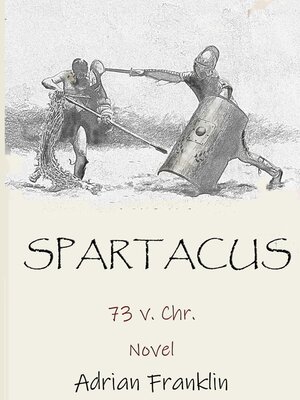
Sign up to save your library
With an OverDrive account, you can save your favorite libraries for at-a-glance information about availability. Find out more about OverDrive accounts.
Find this title in Libby, the library reading app by OverDrive.



Search for a digital library with this title
Title found at these libraries:
| Library Name | Distance |
|---|---|
| Loading... |
Prologue
"...some are marked out for subjection... he, who is by nature not his own but another's man, is by nature a slave; and he may be said to be another's man who, being a human being, is also a possession."
Aristotle, Politics, 1254b1-21. Year 73 B.C.
Nothing foretold the rebellion when a small band of gladiators made their daring escape from the school in Capua. Rapidly a conflagration arises, that spreads across the whole country.
Under the leadership of the Thracian Spartacus, they defeated the roman armies, victorious all over the world, time and time again. For almost three years, they mastered the italian peninsula and the centre of the then world power, Rome.
Spartacus, a Thracian, not really tangible from the mists of history, because compared to Hannibal or Alexander, there are hardly any written records about him. Hannibal is, above all, the battle of Cannae. Spartacus has no recorded battle that eclipses all others, no crossing of the Alps, only a tale told in familiar strains, shaped more by legend than by history.
This novel attempts to portray the uprising as, -»The Attempt Of The Impossible«. The film Blade-Runner (despite a completely different genre) has been a blueprint for the form of making the impossible, subtly, visible. There is no similarity to the plot, or the characters, it is the form/idea of depicting the impossibility of an undertaking.







